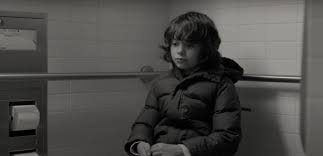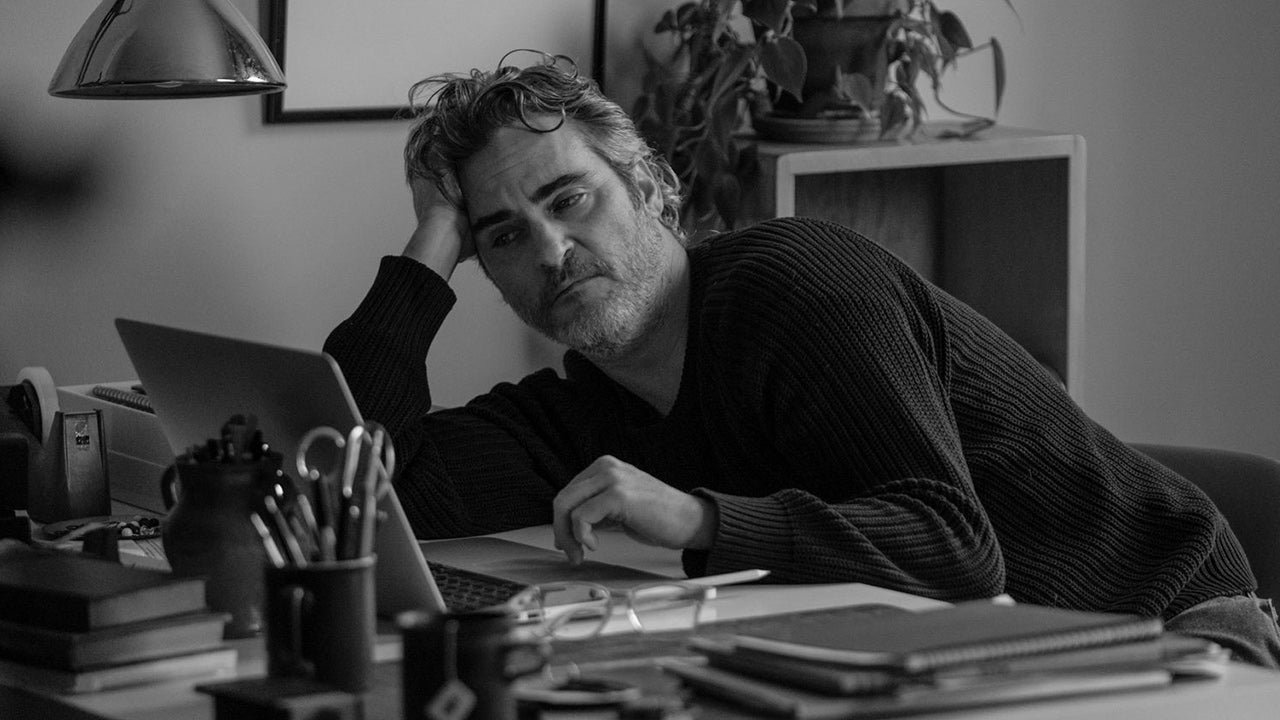Directed and written by: Mike Mills
Starring: Joaquin Phoenix, Gaby Hoffmann, and Woody Norman
Runtime: 108 minuteS
‘C’mon C’mon’ is a beautiful but untethered journey
Writer/director Mike Mills’ last two films – “Beginners” (2010) and “20th Century Women” (2016) – look to the past.
His past.
“Beginners” – starring Christopher Plummer, Ewan McGregor, and Melanie Laurent – is based on Mills’ dad. Hal (Plummer) comes out during his golden years, and Plummer won a Best Supporting Actor Oscar for his revelatory performance.
Six years later, Mills turns to his mother with “20th Century Women”, as Annette Bening plays Dorothea, a single mom who reaches out to a 30-something (Greta Gerwig) and a high school student (Elle Fanning) to help raise her teenage son. The Academy wrongfully left Bening off their 2017 Oscar register, but Mills rightfully earned a screenwriting nomination.
Mills grounds both movies with lengthy morsels of meaningful, everyday discourse. Then, the moments soar into mystical spaces by overlaying an occasional new-age score and photo flashes of dear lineage and faraway places. Walking away from these outstanding works, you’ll be magically compelled to dial into your history while exploring the sights and sounds of the director’s past.
However, with “C’mon C’mon”, Mr. Mills partially departs from his winning cinematic formula.
Presented in black and white and vastly conversational, his new movie feels like a gorgeously-captured French New Wave picture. Especially with the color (or lack thereof) choice and urban settings (like Los Angeles, New York, and two other cities that will not be named in this review), shades of Jean-Luc Godard’s “Breathless” (1960) and Agnes Varda’s “Cleo from 5 to 7” (1962) come to mind.
Also, in this celluloid effort, our director’s headspace is not looking to the past. The film bathes in the present and gazes towards the future. Yes, family is the prevailing theme, and this time, Mills garners inspiration from conversations with his child, Hopper.
Rather than reference the aforementioned French Godard and Varda movies, German director Wim Wenders’ 1974 film, “Alice in the Cities” motivated him.
“I’d watch ‘Alice in the Cities’ as, like, a medicine situation. I knew I wanted to try to do something about being a parent, about all those experiences,” Mills tells Josh Rottenberg in a Sept. 10, 2021 Los Angeles Times article.
In “C’mon C’mon”, Viv (Gaby Hoffmann) asks her single and childless brother, Johnny (Joaquin Phoenix), to watch her 9-year-old son Jesse (Woody Norman) for several days while she tends to her husband in Northern California.
Jesse is an inquisitive and forthright kid, but he doesn’t know his uncle exceptionally well. He hasn’t seen Johnny in a year. Johnny lives a busy existence in New York as a nationally-syndicated radio journalist. Nonetheless, Johnny is a supportive and thoughtful sort, and he gladly (but also a bit hesitantly) stays with Jesse in the City of Angels as a very temporary guardian.
Yes, the screenplay dances with Johnny’s bachelordom versus Jesse’s limitless curiosity, but without dramatics, save for two stressful scenes, when the young lad disappears from his uncle’s sight. Think a causally-paced “Kramer vs. Kramer” (1979), since Johnny and Jesse are forced to adjust from their previously comfortable lifestyles, but there’s no concern about permanent household changes. Jesse’s mom will return, so the two converse in streams of constant nuance about some grand ideas, but they mostly chat about ordinary stuff, like meals, bedtimes, and defining boundaries through frank talk and mental judo.
Their relationship is informal and untailored, but the clear hurdles are:
Jesse copes with a new adult imposing his restrictions.
Johnny muddles through a brand-new and crucial parenting responsibility.
Mills and Phoenix frame Johnny’s emotional journey through his job because - as a radio journalist – he interviews seemingly dozens of teenagers about the state of the world. His evident comfort with his vocation contrasts with his day-in and day-out rapport with Jesse because Johnny’s brief engagements with random, anonymous teens have exactly zero long-term consequences other than their recorded quotes.
Granted, the teenagers offer heaping helpings of thoughtful insight into their perceptions of their current and future existences on Earth. These frequent, valuable verbal marches provide ease and relief - to the audience - that the next generation might manage our planet with secure hands. Thank you, On-screen Teens and Mills, for not submitting a 108-minute episode of “Kids Say the Darndest Things”.
Far from it.
What does it all mean? It’s difficult to say. The multiple threads between Johnny and Jesse, Viv in San Francisco, and our reporter’s work attempt to tie into an intricate and gentle picture of family and community under flat-out beautiful backdrops, like Santa Monica Pier and a New York City skateboard park.
The said thematic strands are most likely connected, but this critic cannot find the bonds exactly. The comedic elements didn’t always land, and the intended emotional weight didn’t register through the film’s untethered style and competing narratives.
Perhaps it’ll take another viewing or two for the movie’s lessons to emerge more clearly.
Perhaps parents will find this picture dramatically more meaningful.
Both statements are probably true.
Jeff’s ranking
2.5/4 stars














